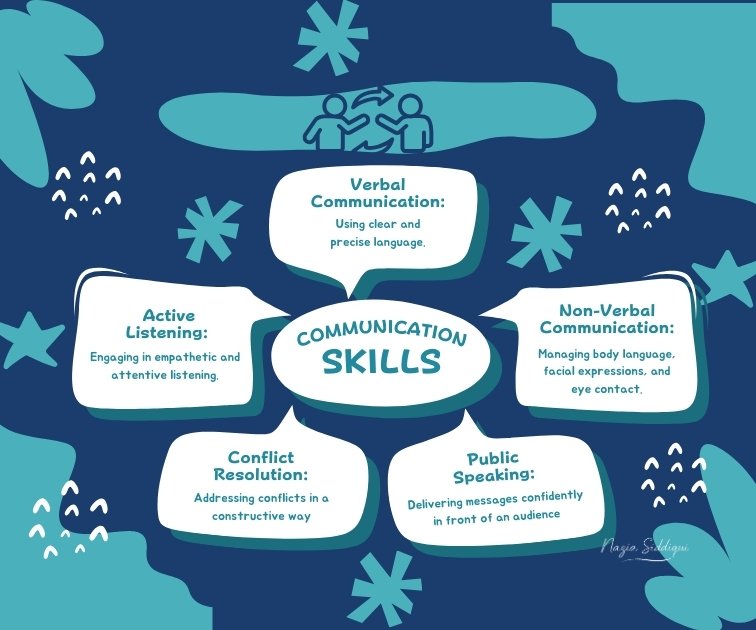Small shifts. Big impact. Begin your journey today.
How To Improve English Speaking Skills: 10 Smart Steps
Have you ever felt tongue-tied when trying to speak English? You know what you want to say, but the words don’t flow out naturally. Maybe you hesitate, maybe you translate in your head, or maybe you avoid speaking altogether because you’re unsure how to improve English speaking skills.
If that’s you, you’re not alone. Every day, learners across the globe search for answers to questions like:
- How to improve English speaking skills fast?
- “What are some practical ways to improve English speaking skills while studying at home?”
- How to develop speaking skills in English as a student?
Here’s the truth, becoming fluent is not about being “perfect.” It’s about progress, practice, and persistence.
In this in-depth guide, you’ll discover 10 smart steps that show you exactly how to improve English speaking skills — whether you’re a beginner, student, professional, or someone practicing at home. Along the way, you’ll find stories of real learners, practical strategies, and inspiration to keep you going.
How To Improve English Speaking Skills For Real Growth
Improving your English speaking skills requires more than memorizing grammar. Fluency is built through consistent use, self-awareness, and exposure to real conversations.
Think of speaking as building a muscle. Like a muscle, the more you practice speaking, the more powerful and confident it becomes.” Whether you want to increase your English speaking skills quickly at home or learn how to improve English speaking skills for your career, the following 10 steps will guide you.
10 Smart Steps To Improve English Speaking Skills

Step 1 – Speak Every Day, Even For A Few Minutes
If you want to know how to improve English speaking skills, here’s the golden rule: You must speak to get better at speaking.
Most learners spend years reading and writing but avoid speaking. That’s like training for a marathon by only watching running videos.
✅ Action Tip: Spend at least 5–10 minutes daily speaking out loud, even if it’s just to yourself.
Real-Life Example: Fatima, a student from Lahore, practiced speaking with her cat every evening for five minutes. She laughed at herself sometimes, but within three months, she could speak fluently with her classmates without freezing.
Step 2 – Think In English Instead Of Translating
Do you ever catch yourself thinking in your native language first, then converting it into English? That slows you down.
To increase your speaking skills, train your brain to think in English directly. Start small:
- Instead of thinking something like “I want a glass of water” in your mother tongue and then converting it, go straight to English: “I need water.”
- The more often you do this, the quicker and more natural your speech will sound.
The more you do this, the faster and more natural your speech becomes.
Step 3 – Learn And Use Phrases, Not Just Words
Memorizing single words often leaves you speechless when forming sentences. Instead, learn phrases and chunks of language.
Examples:
- Instead of just “help,” learn: “Can you help me out?”
- Rather than only saying ‘thanks,’ try a fuller phrase like ‘Thank you so much, I truly appreciate it.’
”This technique makes you sound fluent and helps you develop how to improve English speaking skills naturally.
Step 4 – Shadow Native Speakers To Master Pronunciation
“Shadowing” is a powerful method. You listen to a native speaker (via movies, podcasts, or YouTube) and repeat after them, copying their tone, rhythm, and pronunciation.
✅ Watch a short clip.
✅ Pause after each sentence.
✅ Repeat it exactly as you hear it.
Real-Life Example: Bilal, a university student, shadowed Barack Obama’s speeches for 15 minutes daily. Within two months, his confidence in presentations improved dramatically.
Step 5 – Record Yourself And Track Progress
One of the smartest ways to improve your speaking is to record yourself. This helps you clearly see how to improve English speaking skills over time.
- Notice your pronunciation.
- See if you hesitate often.
- Spot words you repeat unnecessarily.
✅ Try weekly recordings on topics like “My favorite food” or “How can I improve my English speaking skills?” Listen, reflect, and improve.
Step 6 – Use Technology And Online Platforms
You don’t need to wait for in-person classes. Today, you can learn how to improve English speaking skills online with free or affordable tools.
| Tool/Platform | How It Helps |
| Cambly/HelloTalk | Practice with real speakers |
| YouTube | Learn accents, vocabulary, real dialogues |
| Grammarly | Improve grammar in writing to support speaking |
| Clubhouse/Spaces | Join live conversations and speak up |
| Language Exchange | Pair up with learners worldwide |
💡 Pro Tip: Join English discussion forums. Even short interactions build confidence.
Step 7 – Read Aloud To Train Fluency
Reading aloud is an easy and powerful method when you’re learning how to improve English speaking skills at home.
Variation Technique:
- Read once normally.
- Read again with emotion, like you’re performing.
This technique not only improves pronunciation but also makes you more expressive.
Step 8 – Surround Yourself With English Daily
Want to know how to improve English speaking skills quickly at home? Make English part of your daily environment.
- Watch Netflix shows without subtitles.
- Change your phone settings to English.
- Follow English-speaking influencers.
- Write your to-do list in English.
The more you live in English, the less foreign it feels.

Step 9 – Learn From Mistakes Without Fear
The biggest fluency killer? Fear of mistakes.
Remember: every native speaker made mistakes while learning their own language as children. Why should you expect perfection from yourself?
✅ Treat mistakes as teachers, not failures.
✅ Keep speaking, even when unsure.
Real-Life Example: A student once said, “She go to school yesterday.” His classmates laughed. But instead of staying silent, he corrected himself: “Sorry, she went to school yesterday.” That correction cemented the lesson better than a textbook ever could.
Step 10 – Stay Consistent, Even On Hard Days
Fluency is not a one-week project. If you’re serious about learning how to improve English speaking skills, remember it’s a journey.
Even 10 minutes a day adds up. Just like going to the gym, small, consistent effort builds strength over time.
✅ Rule: Never go two days without practicing.
In six months, you’ll look back and be amazed at your progress.
Common Challenges Learners Face When Improving Speaking Skills
Why do so many learners struggle with speaking even after years of study? Here are some common obstacles:
- Fear Of Mistakes – Worrying about judgment leads to silence.
- Grammar Overthinking – Breaking the flow mid-sentence.
- Lack Of Partners – No one to practice with daily.
- Limited Vocabulary – Getting stuck in conversation.
- Accent Worries – Believing fluency requires a “native” accent.
These are the exact obstacles learners face when figuring out how to improve English speaking skills effectively.
Simple Daily Habits To Increase Your Speaking Skills
- Morning Routine In English: Talk through your plans aloud.
- Audio Journals: Record a two-minute reflection daily.
- Vocabulary Challenge: Learn and use 3–5 new words each day.
- English-only Time: Dedicate 30 minutes to only English.
These daily practices make a huge difference if you’re wondering how to improve English speaking skills step by step.
Why Listening Is The Secret Ingredient
You cannot speak well if you don’t listen well—listening is a hidden key to mastering how to improve English speaking skills naturally.
- Podcasts → absorb natural patterns.
- Movies → learn tone and context.
- Conversations → pick up real phrases.
Example: Hassan improved his fluency by listening 20 minutes a day to podcasts before ever speaking.
How To Improve English Speaking Skills For Beginners
If you’re just starting and want to know how to improve English speaking skills for beginners, focus on simple, practical steps:
- Learn everyday phrases.
- Role-play common situations.
- Focus on being understood, not perfect.
- Celebrate small wins, like saying hello to a stranger in English.
How To Improve English Speaking Skills For Students
Students often ask teachers how to improve English speaking skills in school. Here are some simple methods:
- Join or create English clubs.
- Volunteer to present in class.
- Chat with friends in English.
- Join debates or drama clubs.
These build fluency in safe, supportive spaces.
How Professionals Can Develop Speaking Skills In English
If you’re building a career and wondering how to improve English speaking skills for professional growth, focus on:
- Learning business-specific vocabulary.
- Role-playing interviews and meetings.
- Networking in English through webinars.
- Mastering small talk for workplace confidence.
Fun And Creative Ways To Practice Speaking
- Sing along with English songs.
- Act out scenes from movies.
- Give commentary on sports or cooking shows.
- Storytelling Game: Build a story sentence by sentence.
The Role Of Confidence In Speaking Skills
Two learners with the same knowledge can sound very different—confidence makes the difference.
- Use body language.
- Speak with energy.
- Believe in your right to speak English.
A Step-by-Step 30-Day Action Plan
- Week 1: Listen daily, speak 5 minutes.
- Week 2: Add recordings and phrases.
- Week 3: Shadow videos, join online groups.
- Week 4: 10-minute conversations daily.
Myths About Improving Speaking Skills
- Myth 1: Must sound native → Truth: Clarity matters most.
- Myth 2: Grammar must be perfect → Truth: Focus on communication.
- Myth 3: Need a partner → Truth: Practice alone works too.
Motivational Story – From Silent Learner To Fluent Speaker
Sana, once shy and afraid to speak, began recording 2 minutes a day. Six months later, she gave a confident university presentation. Today, she works in an international call center.
Her story proves: consistency beats fear when you want to learn how to improve English speaking skills.
Bonus Resources To Improve Speaking Skills
- Podcasts: The English We Speak, All Ears English.
- YouTube: Speak English With Vanessa, English Addict.
- Apps: Duolingo, ELSA Speak, HelloTalk.
- Books: Fluent English, English Grammar in Use.
Frequently Asked Questions
Q1. How do I improve my English speaking skills quickly?
Speak daily, shadow videos, and practice phrases.
Q2. How to improve your English speaking skills at home?
Read aloud, mirror practice, record yourself.
Q3. How can I improve my English speaking skills online?
Join Cambly, HelloTalk, or online groups.
Q4. How to improve English speaking skills for beginners step by step?
Start with phrases and role-play simple conversations.
Q5. How can students increase their English speaking skills?
Join clubs, present in class, and debate.
Q6. How to better your speaking skills overall?
Use English daily, think in English, avoid translation.
Q7. How can I develop my English speaking skills for career growth?
Practice workplace English, presentations, and interviews.
Q8. How can I increase my English speaking skills quickly at home?
Dedicate 15 minutes to speaking practice daily.
Final Thoughts
So, if you’re still asking yourself how to improve English speaking skills at home, in class, or at work, the answer is simple: practice daily, embrace mistakes, and surround yourself with English.
Imagine yourself six months from now—confident, fluent, and ready to express yourself without fear. That’s not a dream. That’s the result of your consistent effort.
👉 At Nazia Siddiqui, we believe your voice matters. Start today, stay consistent, and English will become not just a subject—but a part of who you are.


